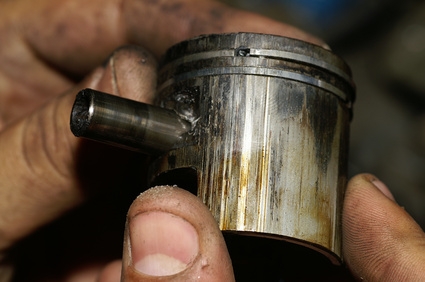
Oil makes your car do what it does best with regards to its engine, transmission and motor parts. It is the fluid lubricant that allows all the parts to keep working with each other without grinding or chipping to a nasty halt. Given technology, synthetic oil has been developed with has produced better results and greater product longevity before needing fluid changes. In some cases it can last longer than mineral oil (traditional petroleum based oil), but in other cases the frequency change limits are the same.
Well-maintained vehicles have regularly been able to perform to as much as 200,000 miles in travel, many of which have been converted over to synthetic oil to prolong performance. So the product has a proven track record for keeping old cars going. Given that older engines are working on parts that are worn, lubrication becomes even more critical to protect those components.
Petroleum-based oil has a tendency to break down in normal engine use. At a certain duration it gets too hot and reaches a gas state, making it useless for lubrication purposes. Instead, the engine gets burned up residue which is commonly referred to as buildup or burnt carbon. Some of it gets washed off by the other oil, some of it doesn't and sticks to engine parts, reducing performance. Oil changes are needed frequently to avoid this problem (ergo every 3,000 to 5,000 miles). The durability of synthetic oil at the same engine temperature makes it a better-performing product because synthetic still stays in liquid, usable form longer. This tolerance for temperature means the oil can stay in the engine and can last as much as 7,000 miles before changing.
Most oil and car warranties will put the maximum length of mileage before a change at 7,500 for petroleum-based products (many cars are closer to 5,000 even with today's better engines). Given the heat-tolerance properties of synthetic oil, 7,500 miles is not an issue. That said, oil-changing frequency is a personal and financial decision as well.
Sure, you get longer mileage with a synthetic oil product, but you pay more per bottle since the unit price is generally more expensive. So financially it's a trade-off. Other reasons for synthetic have nothing to do with frequency, as some car owners just feel partial to synthetic for their cars.
If you're going to switch oils to extend oil-changing frequency, it's not as simple as just dumping in new synthetic oil with old mineral oil. And you need to flush the system even after draining it to confirm no mixture. After flushing, the first oil run should be about 2,000 to 3,000 miles and another change to get rid of the last residue mixture.